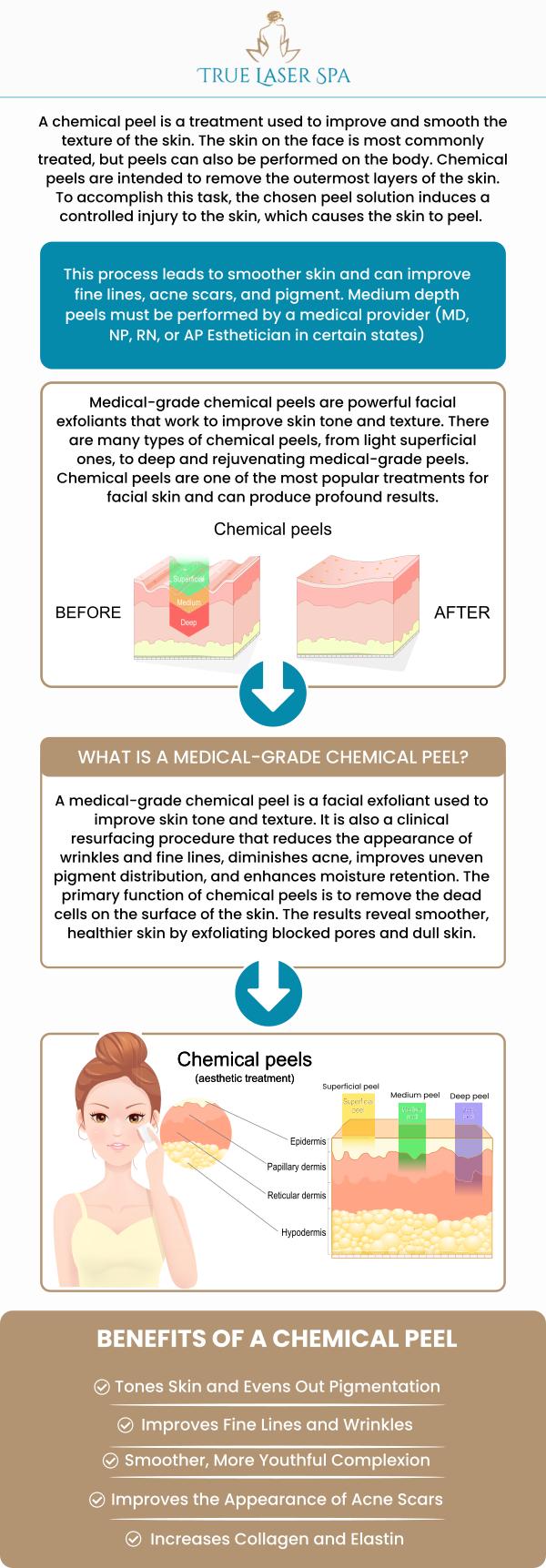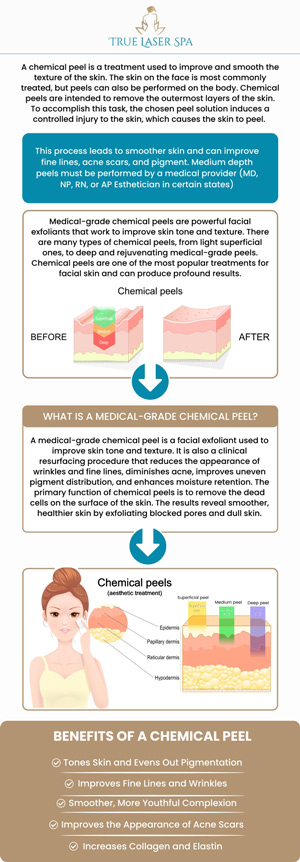How Does a Chemical Peel Work for Acne?
Acne is a common skin condition that affects millions of people worldwide. While there are many treatments available, acne peels have become increasingly popular due to their effectiveness in treating acne and improving skin texture. True Laser Spa makes sure to provide exceptional services. For more information, please contact us or request an appointment online. We are conveniently located at 490 Post St, Suite 1703, Saint Clair Shores, MI 94102.


Check Out Our 5 Star Reviews


Additional Services You May Need
▸ Facial Hair Removal
▸ Laser Hair Removal
▸ Laser Fat Removal
▸ Smart Lipo
▸ Vaser Quanta
▸ Zerona Fat Removal
▸ Skin Tightening
▸ IPL Beauty
▸ Botox and Fillers
▸ Ultrasonic Facial
▸ Radio Frequency
▸ Perfect Touch
▸ Magic Touch
▸ Regenerative Therapy
▸ Microdermabrasion
▸ Microneedling
▸ 24 Karat Gold Mask

Additional Services You May Need
▸ Facial Hair Removal
▸ Laser Hair Removal
▸ Laser Fat Removal
▸ Smart Lipo
▸ Vaser Quanta
▸ Zerona Fat Removal
▸ Skin Tightening
▸ IPL Beauty
▸ Botox and Fillers
▸ Ultrasonic Facial
▸ Radio Frequency
▸ Perfect Touch
▸ Magic Touch
▸ Regenerative Therapy
▸ Microdermabrasion
▸ Microneedling
▸ 24 Karat Gold Mask





